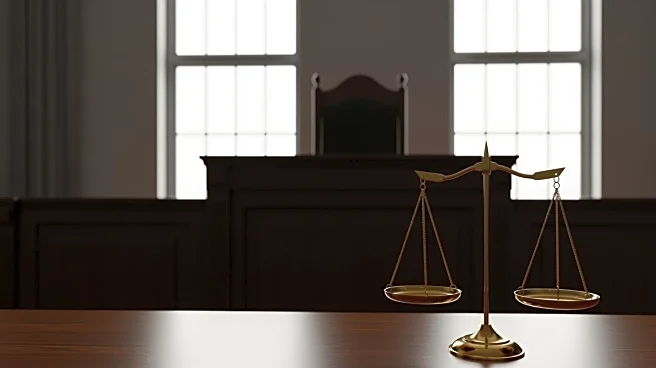What's Happening?
Albemarle, the world's largest lithium producer, has constructed facilities on public land at its Silver Peak Mine in Nevada without prior permission. The company is now seeking retroactive approval from the Trump administration as part of a fast-track expansion initiative aimed at boosting mining on public lands. The expansion would significantly increase the mine's footprint, adding infrastructure such as pump stations and pipelines. This development has sparked controversy, with concerns about potential conflicts of interest involving Interior Department officials and the environmental impact of the expansion.
Why It's Important?
The situation highlights ongoing debates about resource extraction on public lands and the balance between economic development and environmental protection. Albemarle's request for retroactive approval raises questions about regulatory oversight and the influence of corporate interests in public land management. The expansion could have significant environmental implications, affecting local ecosystems and water resources. Additionally, the controversy surrounding potential conflicts of interest underscores the need for transparency and accountability in government decision-making processes.
What's Next?
The Bureau of Land Management has opened a public comment period on the Silver Peak mine expansion, with a virtual public meeting scheduled for September 23. Stakeholders, including environmental groups and local communities, are expected to participate in the discussion, voicing concerns and advocating for responsible land management practices. The outcome of this process may influence future policies regarding mining on public lands and the role of corporate interests in shaping land use decisions.
Beyond the Headlines
The case raises broader ethical and legal questions about the management of public lands and the responsibilities of corporations operating in these areas. It highlights the need for robust regulatory frameworks to ensure that resource extraction activities are conducted sustainably and transparently. The situation may also prompt discussions about the long-term impact of mining on public lands and the importance of preserving natural resources for future generations.









